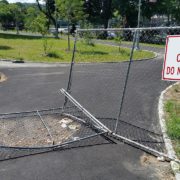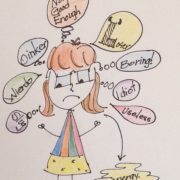When clients tell me they are just anxious and don’t know why, especially when they awaken with a certain physical dread of the day, it is sometimes tough to help them understand that they have fallen into an anxiety habit. I’m not talking about PTSD or trauma induced anxiety, I am referring to a sort of low level thrum, almost like a slight electrical current that runs through their body, that can be easily heightened when a trigger occurs. Your mind takes you there faster than a speeding train! What kind of anxiety triggers you ask?

There are three kinds of triggers that lead to anxiety.
Three Anxiety Triggers
The first is physical sensations. That would consist of signals from your skin, like heat of blushing, or the clamminess your hands may feel. Or it can be the knot in your stomach, and the rapid hearbeat you feel. There is a sense of urgency to “do something” about it that is truly physical in nature.
The second anxiety trigger is when an event occurs. One example might be while you are watching TV, and you hear a story about something that makes you recall a fear you experienced in the past. Hearing the host tell the story is the event. Maybe they told a story of being sent to summer camp and crying to return home early. You then recall the same fear you had has a child, of sleep overs, and having to call your parents to come get you. You remember both the fear and the embarrassment of leaving the party early.
The third anxiety trigger, started by the second, (see example above) is your memory. More specifically, this refers to your amygdala, the organ in your brain that stores all of the potentially dangerous events that have occurred in your life to date. The event pulled one of these memories up and activated it. Please note the word potentially, for that is how anxiety works. It warns you automatically of the potential for disaster–when it may well be simply your fear of fear that is at work. That fear is the habit of vigilance that has become ingrained now as your ‘go to’ response. You ZOOM there at warp speed, without any notion whatsoever of how you arrived.
And that is the work you have before you. Increasing your awareness of this fear habit, its anxiety triggers, and the story you are telling yourself about why you must (it is a compelling urge, right?) engage in worry as a preventative measure–which may make you feel better in the short term, but is disastrous for long term benefits. It only increases and deepens your worry habit.
Do you want to learn how to stop this train? Because I can help you if you do. Shoot me an email or go to my contact page. Life is too short to struggle with this alone.
Resource: Click here for another terrific (albeit longer!) article on the topic. It was originally written by Eric Barker on his blog, Barking Up The Wrong Tree.










